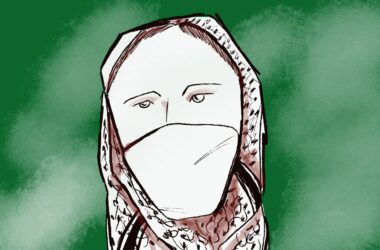
After two rounds of voting last Tuesday, Canada withdrew its bid for a temporary seat on the United Nations Security Council, a seat which it deserved to win. It was the first time in over 50 years that Canada did not win its campaign for a seat. Canada not only lost prestige by losing the election, but also a chance to use its foreign policy record as a supporter of human rights and democratic regimes as an example for other member states.
The seat is supposed to go to a country that has made significant contributions to international peace and security. During Canada’s last stint on the council, in 1999-2000, it led the fight against blood diamonds, promoted the creation of the International Criminal Court, helped protect civilians caught in armed conflicts and promoted smart sanctions against uncooperative regimes. Canada used its chairmanship of the G8 to reach out to leaders from Africa and the Americas and to secure an agreement to enact the Muskoka Initiative for maternal newborn and child health. Canada clearly has the necessary skills to steer the UNSC in the right direction. During its campaign for the seat this time, it made particular mention of its leadership in Afghanistan as evidence that it can take a leading role in international affairs.
In the last 10 years, Canada has become a new presence in world affairs—a shift from its previously passive image. Canada has condemned the nuclear ambitions of Iran and helped promote sanctions against it. In early June, Canada agreed to implement the measures outlined in UNSC Resolution 1929 and confront the Iranian nuclear threat. With a seat on the Security Council, Canada might have had the opportunity to encourage the international community to follow suit.
Liberal leader Michael Ignatieff said last month that he didn’t think that Canada deserved to win the election for the seat. He is wrong. If there is one country that has earned the right to be on the Security Council, it’s Canada.
Ignatieff fails to recognize Canada’s efforts in the international arena during the last 10 years. Increases in Canadian aid to Africa, efforts to improve the health of mothers and children, and working to fight HIV/AIDS, tuberculosis, and malaria are only a few of Canada’s recent accomplishments. As a potential future leader of Canada, Ignatieff should be the first to proclaim these achievements and support Canada’s increased involvement in international affairs, no matter who the current government is. It is a sad day for Canada and for the UN when a chance to bring open discourse, transparency, and a re-focused agenda is taken away.
Successive Canadian governments have said that the integrity of the UN must be maintained through a process of reforms to eliminate its debilitating partisanship. In December 2004, Canada encouraged General Assembly members to focus on more constructive resolutions rather than focusing on a single area: the Middle East. This would enhance the credibility of the UN and make its organization more influential globally. A year later, Prime Minister Paul Martin vowed “to eliminate … the annual rite of politicized anti-Israel resolutions” at the UN. Prime Minister Stephen Harper has also pledged to pursue UN reform to make the system more transparent, accountable and effective.
The potential to implement such reforms has disappeared along with Canada’s bid for the Security Council. It is a serious loss for Canada, and even more serious a loss for the UN.








